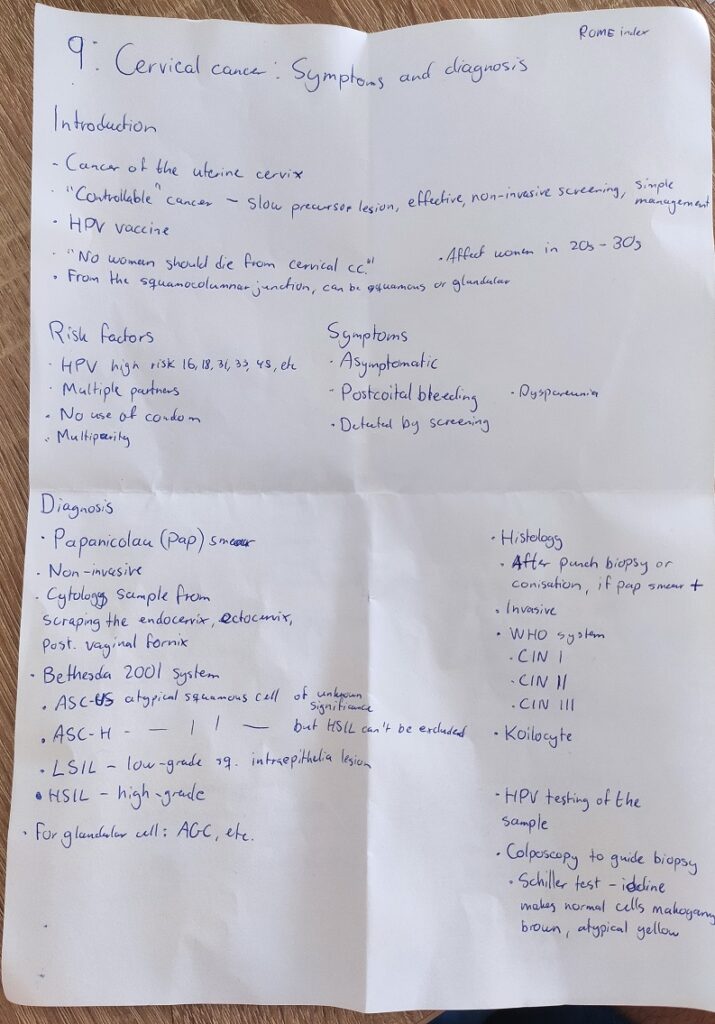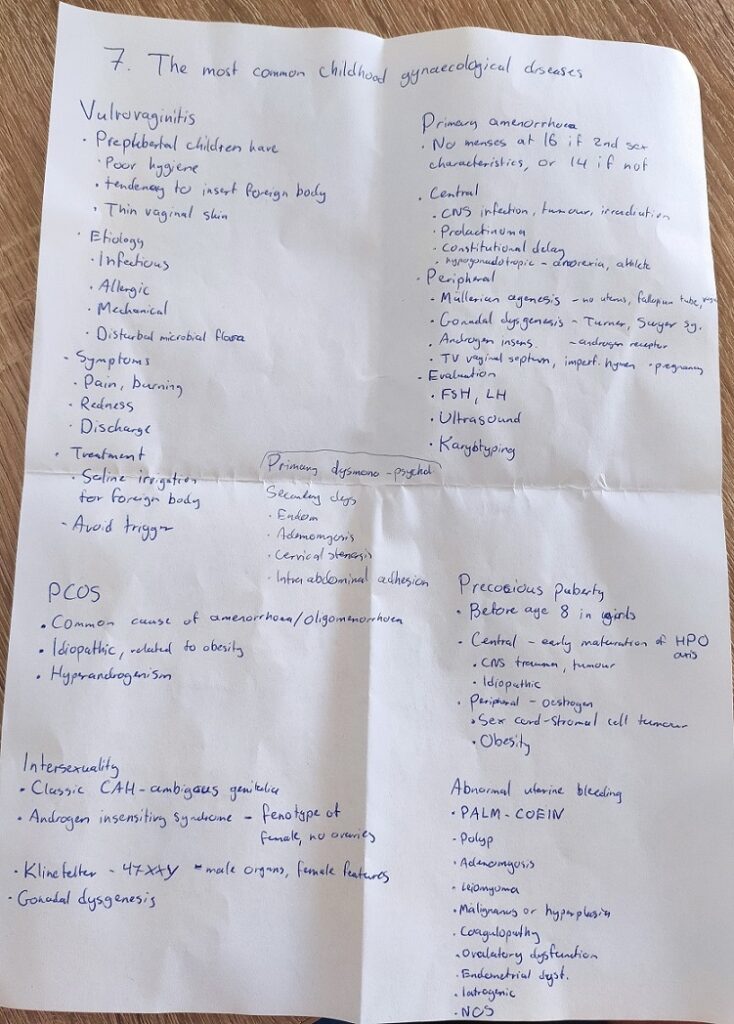So I had my gyn 2 exam on Thursday. It began at 8:00, before which we’d been waiting outside the building where ENT lectures and ob/gyn seminars took place. At 8, a woman comes and tells us to follow her to one of the seminar rooms. We were only 5 students who took the exam that day and so we were all allowed to prepare simultaneously, inside the room. Each of us drew two topics randomly, one from each pile. I drew A9: Cervical cancer, symptoms and diagnosis and B7: The most common childhood gynaecological disorders, the first of which was very good and the second which was meh. I was the fourth person to have the exam, and all exams took place in the room where we were preparing. The examiner was dr. Bálint Farkas.
A9: Cervical cancer, symptoms and diagnosis

I began with this topic as it was by far my strongest one. Dr. Farkas had the lecture on this and I’d watched that lecture, so I felt that I knew exactly what he wanted to hear. I began with an introduction of cervical cancer, with special emphasis on it being a “controllable” cancer as he’d put it himself in the lecture. I continue with the risk factors and symptoms, as I’d written it down.
I then talk about the pap smear, emphasising how it’s a cytological classification, and basically saying what I’d written down. Before I get the chance to talk about CIN, he asks me what CIN is, so I continue with that. Basically continuing with what I’d written down.
He asks me “what could be the treatment of a stage Ia1 cervical cancer?”, to which I answer “conisation”. He then says “yes, and what if the patient does not desire pregnancy?”. I answer “then we can do total hysterectomy with bilateral salpingo-oophorectomy”, to which he agreed. He had no other questions to this topic, and we continued to the next.
B7: The most common childhood gynaecological disorders

(You can tell that I didn’t really know what to talk about here. Also, I wrote the stuff about dysmenorrhoea in the middle of the paper after my exam, to remember what he told me.)
This was a much less confident topic of mine, as I don’t really know what to talk about here (which is why I’d written down so much random stuff during prep time). I began with vulvovaginitis, basically saying what I’d written down about it and nothing else. I pause for a bit as I’m pondering what to talk about next, until he interrupts my thinking with the question “what is dysmenorrhoea?”. I reply that it’s painful menstruation. He then asks what primary and secondary dysmenorrhoea is. I’d never read anything about primary and secondary types, so I didn’t really know. I guessed that endometriosis was a primary type, to which he said that that’s rather a secondary type. At that point I understood that primary probably meant idiopathic, so I said just that, which he agreed with. He starts explaining how primary dysmenorrhoea may be related to learned behaviour from family somehow. He then asks for causes of secondary dysmenorrhoea. I repeat endometriosis, and after thinking for a bit I say fibroids, to which he agrees. He then asks, “what’s it called when endometriosis invades the uterine wall?”, to which I respond “adenomyosis”, which he says is another cause.
He then says “there are two other causes as well, but you’re probably not going to guess those. They are cervical stenosis and intraabdominal adhesions”. He was right about me never going to guess those.
At this point my exam is already over. He says that this was excellent, and the co-examiner shoots with a “this should be a 5+”. Dr. Farkas tells me to “keep up the good work”, which was a nice ending to the exam period.
Finishing thoughts
I was super lucky with my A topic. I think I got off the hook easily on my B topic because I did so well on my A. In either case, he was quite nice and understanding. To be honest, when he entered the room he seemed to be in a bit of a bad mood, but it turned out that he wasn’t at all. Everyone who had the exam that day got good grades, even though all of us said some really wrong stuff (something about micropenis in Turner syndrome) and sometimes needed a lot of help to getting to the right answer.
That marks the end of my 5th year, and the end to my last ever “conventional” exam period, which I am eternally grateful to be done with.